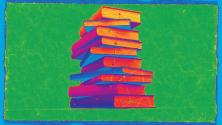On Thursday, Oct 21, opensource.com will host a webcast with Joseph Reagle, a leading scholar and expert on Wikipedia's collaborative culture. He is also the author of the new book on the subject, “Good Faith Collaboration.”
We had the chance to learn more about his book and how Wikipedia works in an interview with Reagle last month. We were interested to learn more and thought you would be, too.
In his webcast, he will share more about the laws and principles that Wikipedia uses to guide content development. These principles work to keep contributors focused on a bigger mission and provide guidelines for resolving disputes as they arise.
Which they inevitably do.
Wikipedia's dream is a big one: To create a universal repository of human knowledge, all built by a collaborative community of volunteers. And like many communities of passionate people with a common mission and vastly different perspectives, Wikipedia culture is not without conflict. Wikipedia isn't perfect, nor are the model or laws that govern it.
But the result is difficult to argue: In a short time Wikipedia has collected an unprecedented repository of open knowledge. Its model has been studied, copied, and challenged. People may love it, they may hate it, but we're all benefiting from it. And the lessons of Wikipedia and its guidelines can serve as a case study for anyone looking to work with a community to create and collaborate on a mass scale.
Reagle is also a Fellow at the Berkman Center for Internet and Society at Harvard Law School.
Please join us: Thursday, Oct 21 at 1 p.m. ET







1 Comment